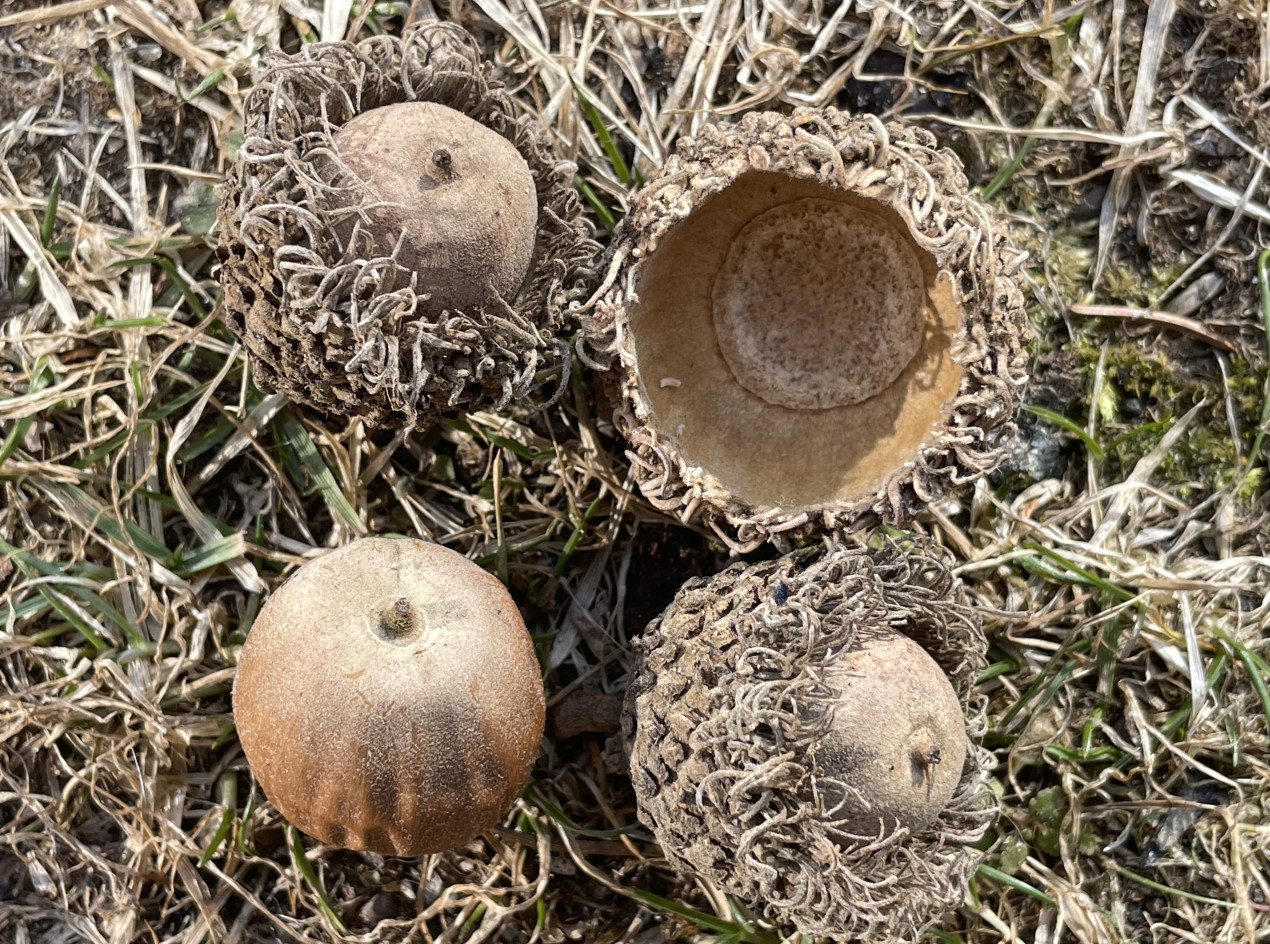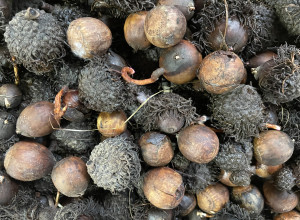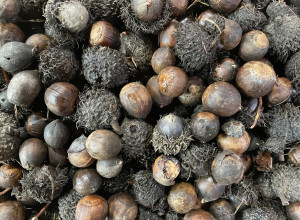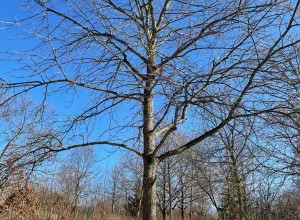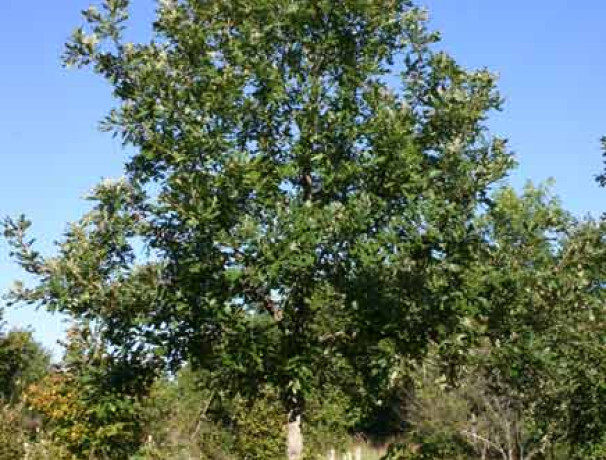Experience-Seeds-Knowledge-Plant Discoveries-Ecological Enrichment-Join Now Click Here!

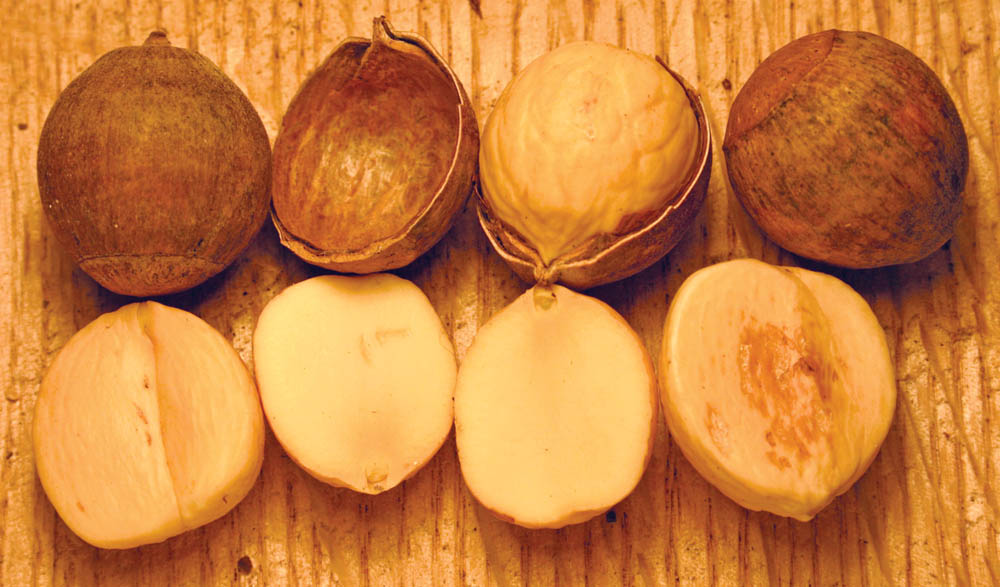

Sold out. No tannin acorn with only trace amounts of tannins edible fresh even without leaching. The only selection in its class.
"Manna" oak represents a life long interest of 'sweet' acorns for Miguel Marquez. His hand pollination techniques to create hybrid oaks were unrivaled. Despite his own physical limitations he was fortunate to assemble an oak collection with the help of Fred Ashworth and others to work on his dream. I was extremely fortunate to plant many of these hand pollinations at my farm starting in the 1980's. I purchased the seeds from him to add to my own collection of what was called 'sweet acorns'. Two of them I named as varieties and have since distributed both acorns and scions of them. One of them, 'Manna' has extremely low levels of tannin in them far beyond any acorn I have ever eaten. And I have tasted a lot of them over my lifetime.
It is normal to find less astringent acorns in the wild. There is quite a range of this important compound meant to protect the acorn as it develops. But what is unusual and rare is to find an oak tree which produces an acorn that can be eaten raw completely without that all too familiar 'dry' feeling on your tongue. Why is this important? This makes it possible to process the acorns much easier for use as flour with the grind, soak and decant methods. Usually one treatment is enough. But with Manna there is only trace amounts of tannin in the acorn making it completely palatable in the raw state without the astringency and bitterness associated with eating raw acorns.
For the last three years, I have sent out many packets of acorns for people to taste test for me as well as visitors to the farm. So far 100 percent have said there is no bitterness and the acorns are delicious raw. Only one has mentioned some light astringency at the very end of a taste test. To do a good acorn test, you need to really crunch up the acorn in your mouth and chew vigorously until it is paste. This is something hard to complete with most acorns fresh off the tree. Manna acorns have a light nutty flavor with no lingering bitterness or astringency. "
This package comes with 50 acorns plus 4 pieces of scion-wood, which will allow you to clonally propagate Manna as well as create new varieties from this break through cultivar. You can taste test a few acorns too. You can also sell the plant in the nursery trade should you have bigger ambitions. Grafting oaks runs around 50 percent success-takes at my farm where we would get close to 100 percent on apples. A new method called nut grafting or acorn grafting is when you use the acorn as the rootstock. This is now a method widely adapted for the Quercus ilex ballota oaks of Spain which provides close to a 100 percent take. The most common oak graft is whip and tongue. After grafting a warming period of 90 F is done for a week to help promote callusing. Oaks are slow to callus. Commercial nurseries have figured out a higher take but many like to keep secrets on their success I have been told. Acorn grafting looks like the next method for grafting oaks reliably.
More will be posted on clonal oak propagation later. In the meantime, feel free to contact me on grafting techniques and help by emailing me or to set up a phone conversation on the subject.
A note on the taste of acorns: All acorns no matter what their origin have amounts of tannins in them which if consumed in large quantities would lead to kidney failure. It happens to cows and it could happen to you if you somehow managed to eat a large amount of acorn that are bitter. To make matters worse certain cultures where large amounts of ferns are consumed which also contain large amounts of tannins can also lead to specific types of cancer. Because of this it is always recommended you process acorns in a hot water bath or grind them and soak them in water over night and then decant and repeat the process until the tannins are gone and the meal has no astringency. The tannins naturally found in acorns are bad tasting for a reason. To prevent us from eating them! Over time, consuming this would be physiologically a bad idea. It doesn't matter if think you are use to it or not. So please leach all acorns before using them. This makes them safe to eat and of course pleasant to consume. Those two things are connected. Acorns tested in an unripened state have the highest tannin levels. Acorns in the red oak group have the highest tannin levels but not always. Some southwestern red oak species are naturally lower than others. This is the world of oaks and the acorns they produce: varied and diverse. "Manna" makes it possible to commercially produce acorns as a nut crop for the first time.
To germinate the acorns: the "Manna" acorns are currently germinating and some roots already out of the shell. But not all of them. To unify the germination and fulfill the dormancy put your acorns in the refrigerator with a moist paper towel and store for roughly 60 days. Remove the towel and put it a new one if mold is developing. If that happens, take them out and wash them thoroughly before putting them back. The acorns have not been dried and have enough inherit moisture to store like they are without the addition of a lot of soil. So if you decide to add some peat moss to them to store, that is fine but careful about adding to much moisture to the bag. The caps are left on as they are slightly moist and aid in moisture retention around the acorn. These are sent with a little peat moss mixture added in and moistened. The acorns are stored in a refrigerator at 38 F.
| Plant Specs | |
| Genus & Species | Quercus macrocarpa x Ashworth cross |
| Seed Source | Michigan |
| Hardiness | -25F or more |
| Height (ft) | 40-60 ft. with equal width |
| Pollination Requirements | Likely self fertile but not tested to any degree. Other bur oaks and bur oak hybrids will help with acorn set but it may not be necessary. |
| Soil | Sandy, sandy loam, loam. Tolerant to higher ph soils as well as clay soils. |
| Climate | Zone 3-8 |
| Ease of Cultivation | An easy tree to grow and fruit. Practical to grow in terms of processing and use of an otherwise hard crop to use as is The yields tend towards alternate in my orchard which is typical for many white oaks. Having additional seedlings of Manna will help prevent this all or nothing crop from occurring on a population level as well as develop new cultivars with low tannin acorns. |
Related Plants
Nutty Oak Acorns and Scions
Nutty Tasting Acorn with Low Tannin and a Distinctive Delicious Flavor without Leaching One of th..
$180.00
